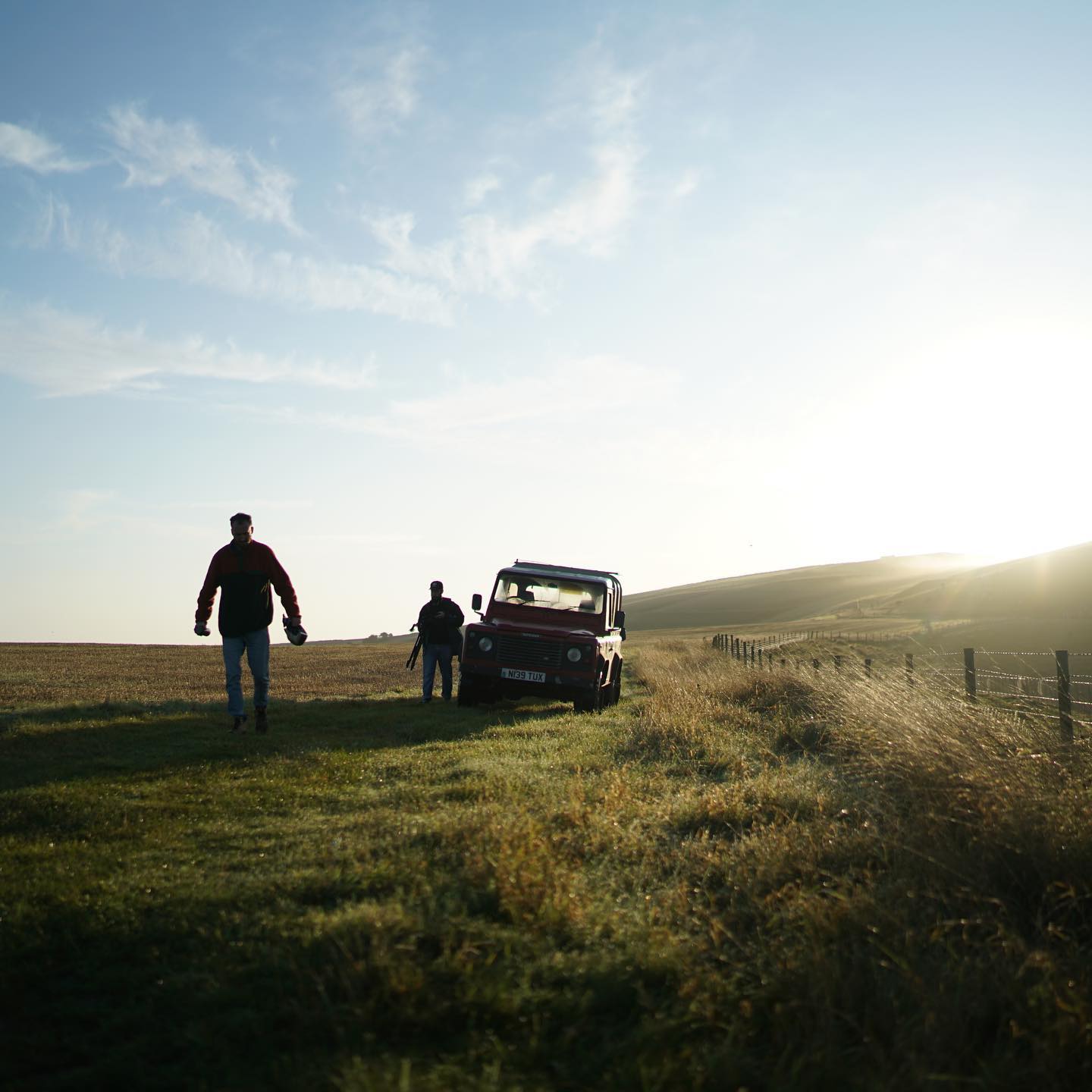-
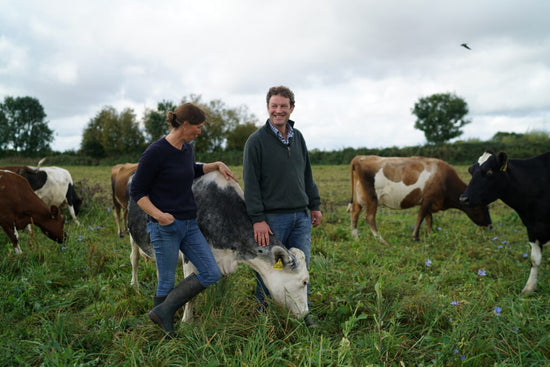
Horton House Farm, Wiltshire
Situated on the Wiltshire Somerset border in the lush Pewsey Vale and extending to the chalk downlands above the valley, Jonny and Rachael Rider are the third generation of the Rider family to be rotational grazing on these extensive organic pastures, rich with a mix of grasses, herbs, legumes and wild flowers
Cows
In 1954, Jonny’s grandfather brought his herd of dairy cows down from Shropshire on the train.
-
On arrival at Devizes station, the cows were walked through the town centre and out onto the pastures at Horton to be milked that afternoon!
Jonny and Rachael Rider (with help from their four children) look after a herd of 400 dairy cows, milking them once each day. The diversity of breeds includes Jersey, Red Poll, Ayrshire and Montbeliarde.
Horton House is such a tranquil, low stress environment where the cows are in exemplary health. Antibiotic usage has been virtually zero for the last 10 years. Some of the cows at Horton are still giving milk and having a calf at 18 years old, testament to a gentle way of life. The young dairy calves are nurtured and stay either with their mother cows or join up with other retired cows on the farm to suckle naturally for the first 8-10 months before weaning.
The dairy herd are “rotationally grazed”, a regenerative principle based on moving livestock onto fresh grass every day. Grazing fresh pasture packed with all the nutrition the animals require, they will fertilise the ground with their manure before being moved onto the next paddock. Rotational or “holistic planned grazing” is a core practice of regenerative agriculture, putting organic matter back into the soil and allowing the land time to rest and regenerate.
-
Sheep
The native Wiltshire Horn sheep at Horton graze high upon the chalk downs overlooking the vast expanse of the Salisbury plains. The Wiltshire Horn breed were brought over by the Romans, and the backdrop to their environment is steeped in archaeological history with the clearly visible ancient crop steps and burial chambers.
-
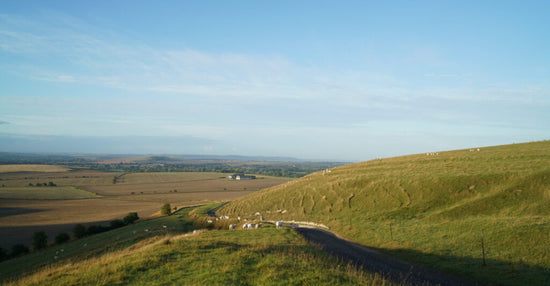
-
Wiltshire Horn actually have hair instead of wool, which means they don’t need shearing. In rotation with thecows, the sheep are integral for managing the pasture, encouraging rare species of wildflowers and butterflies. As an example, the cows tend to pull out the tussocky grass which the sheep don’t eat. But the sheep will eat the ragwort that the cows won’t touch (as it’s poisonous to cows). This is a farm where wildlife thrives. Jonny and Rachael work with other farmers across the downs to help nurture endangered species and restore biodiversity. Marsh fritillary butterfly and yellow wagtails are two species recently observed, with wildlife experts confirming the importance of grazing for insect and bird life.
-
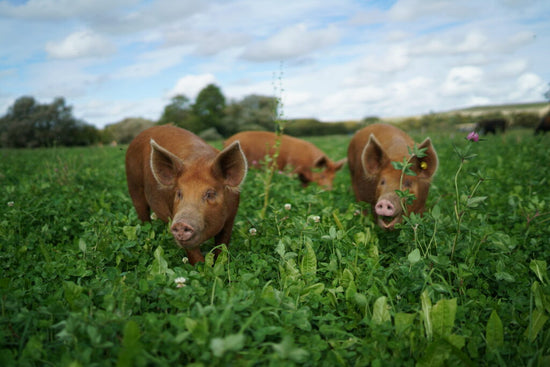
Pigs
Pigs are intelligent, funny and easy to become attached to. The magnificent pedigree Tamworths at Horton are excellent grazers. They live out in the pastures, among the cows, free to come and go as they please. Pigs are important for a healthy functioning farm like Horton House; they graze an area of pasture before the cows, rooting out any unwanted species such as thistles and fertilising the soil with their manure. They also drink waste cows milk from the dairy. In winter, they can cultivate large areas in preparation for new growth, preventing the need to pull big tractors and ploughs across the land and through the soil.
Goats
Another pioneering project in the pipeline; the family have recently taken on a herd of 200 goats and will soon be managing the only organic and pasture grazed goat herd in the UK. Actually, that should read Molly and Rosie Rider, because the two girls have been looking after all the goats and milking them daily!
-
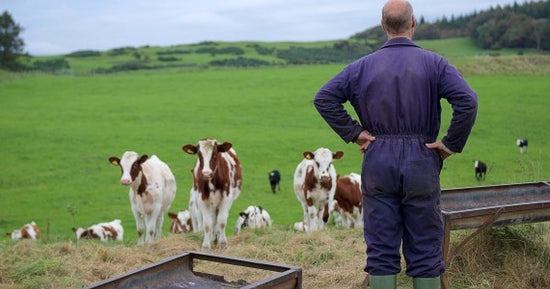
The Ethical Dairy, Dumfries & Galloway
The Ethical Dairy at Rainton Farm in South West Scotland have started a revolution and it’s gaining momentum. Farmers David and Wilma Finlay have pioneered the first commercial scale “cow with calf” dairy farm in the UK. Demonstrating that cow with dairy farming is viable at scale, since October 2016 all calves born have stayed with their mothers the first 6 months to suckle and graze naturally. Cows are milked during that period, but only once each day. The whole approach is based around treating the animals, the land, our environment and the people on the farm with respect and kindness. Certified Pasture for Life and Organic. By harnessing the power of the natural ecological functions on farm and applying regenerative principles, or farmers are proving that high quality and nutritious dairy and beef can be produced efficiently alongside each other.

